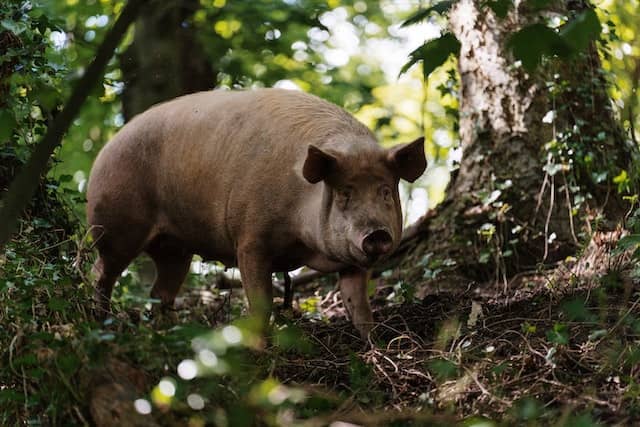How does Jack feel about not killing the pig? In William Golding’s novel Lord of the Flies, Jack is introduced as a ruthless hunter eager to kill and prove his dominance over others. However, he hesitates when he lifts his knife to kill a piglet. This moment of hesitation raises the question of how Jack feels about not killing the pig and what it means for his character. Furthermore, Jack promises there will be “no mercy” next time he meets a pig, indicating that he must learn to put aside his inhibitions to survive on the deserted island. This article will delve deeper into Jack’s relationship with killing and explore his character development throughout the novel.
How does Jack feel about not killing the pig in Lord of the Flies? (Answer)
In William Golding’s book Lord of the Flies, Jack is portrayed as a ruthless and violent leader of a group of boys stranded on an island. Jack’s obsession with hunting and killing pigs is a recurring theme throughout the novel. However, when Jack hesitates to kill a piglet, it is evident that he has conflicting emotions toward his actions.
Jack’s hesitation when he lifts his knife to kill the piglet shows he is not entirely comfortable with killing. This hesitation suggests that Jack is struggling with his own inhibitions, either learned or natural, preventing him from following through with his violent tendencies. Jack is experiencing internal conflict as he is torn between his desire to hunt and kill and his moral reservations about taking another life.
Despite his hesitation, Jack promises that “next time there would be no mercy” when he meets a pig. This statement shows Jack is determined to overcome his inhibitions and become more ruthless. He sees himself as a hunter and believes killing is necessary for survival on the island.
However, Jack’s promise also reveals his increasing descent into savagery. He is becoming detached from the values of civilization and embracing his primal instincts. His promise to show “no mercy” suggests that he is losing touch with his humanity and becoming more animalistic.
Why does Jack hesitate to kill the pig and what does he promise?
In the book Lord of the Flies, Jack hesitates to kill the pig during their first hunting expedition because he is initially overwhelmed by the magnitude of taking a life. Although he desires power and dominance over others, this moment is his first encounter with the brutality and reality of killing. It momentarily shakes his confidence and confronts him with the moral implications of his actions.
However, to regain control over his fear and assert his authority, Jack promises to become more savage and primal in his pursuit of hunting. He vows to overcome any hesitation or remorse to prove himself as a strong leader and hunter. This promise represents a turning point for Jack as it marks his descent into savagery and abandonment of societal values.
What is Jack’s excuse for not killing the pig?
In Lord of the Flies, Jack’s excuse for not killing the pig is that he couldn’t find a good opportunity or enough space to do it. He claims he was hesitant because he didn’t want to miss and waste their chance of securing food. However, as the story progresses, it becomes evident that his reluctance stems more from his fear of facing the brutality and violence required to kill an animal than from any practical concerns. Jack’s excuse evolves into a reflection of his internal struggle between civilization and savagery, as he eventually gives in to his primal instincts and becomes obsessed with hunting and killing pigs.
Conclusion
In conclusion, Jack’s hesitation in killing the piglet in Lord of the Flies demonstrates that he struggles with his own inhibitions towards violence. His promise to show “no mercy” the next time he meets a pig reveals his increasing descent into savagery and detachment from civilization. Jack’s character arc in the novel warns against the dangers of unchecked violence and the importance of maintaining one’s humanity in the face of adversity.
